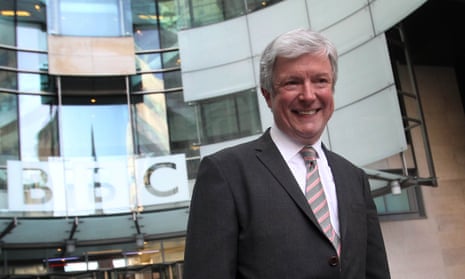The BBC is set to unveil proposals for a significant expansion of the BBC World Service, including potentially a satellite TV service for Russian speakers and a daily radio news programme for North Korea.
The proposals, which will be announced by director general Tony Hall on Monday, include beefing up the BBC Arabic service to offer more regional content, with increased coverage of north Africa and the Middle East.
The BBC argues that the expansion is about “democracy and the free press” at a time which has seen the rise of big state-sponsored rivals, such as al-Jazeera and RT (previously Russia Today), both of which now have UK operations, and China Central Television.
“This is about Britain’s place in the world,” said a BBC source. “It is above the politics of the debates about the BBC’s future. It has to be a national priority. Other news outlets are growing globally and many do not share our traditions and values. We have a strong commitment to uphold global democracy through accurate, impartial and independent news. There should no longer be any no-go countries for the World Service.”
The proposals include looking at a satellite TV service for Russian speakers or ramping up digital presence on YouTube or Rutube, the Russian equivalent, and TV bulletins for neighbouring eastern European states. In addition, the corporation intends to extend its digital and mobile offerings for the Indian and Nigerian markets.
The BBC was forced to take on the £245m annual cost of the World Service, which had been funded by the Foreign and Commonwealth Office, from last year as part of the 2010 licence fee settlement with the government.
In an ironic twist, the BBC is to seek financial support from the government for the expansion. The BBC will offer to match any increase in public funding for the World Service if it can be allowed to more heavily-commercialise its Global News operation outside the UK, which generates more than £100m in revenues annually from sources including advertising and sponsorship.
Earlier this year, the BBC published its Future of News report, which warned the government that cuts to the World Service would reduce the UK’s global “soft power” in the face of the growth of rivals such as RT and al-Jazeera.
“The World Service faces a choice between decline and growth,” the report said. “If the UK wants the BBC to remain valued and respected, an ambassador of Britain’s values and an agent of soft power in the world, then the BBC is going to have to commit to growing the World Service and the government will have to recognise this.”

Comments (…)
Sign in or create your Guardian account to join the discussion